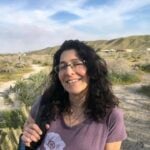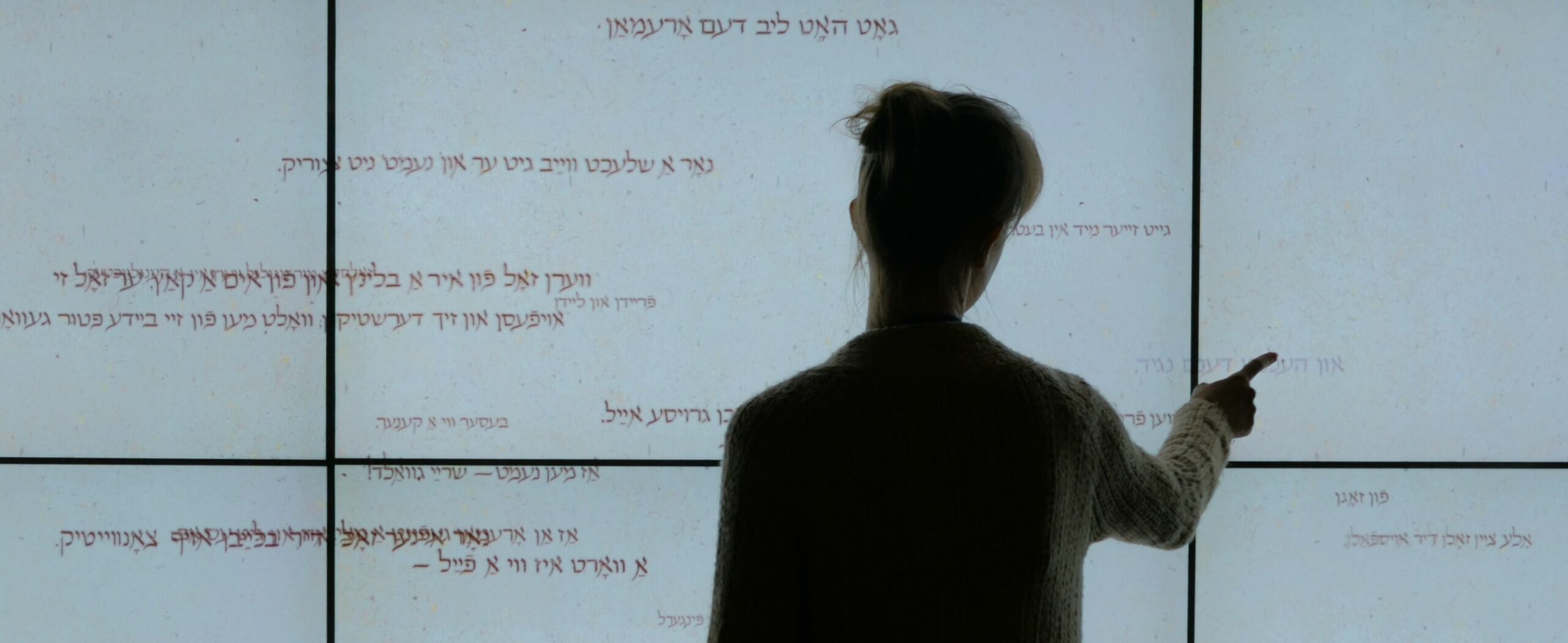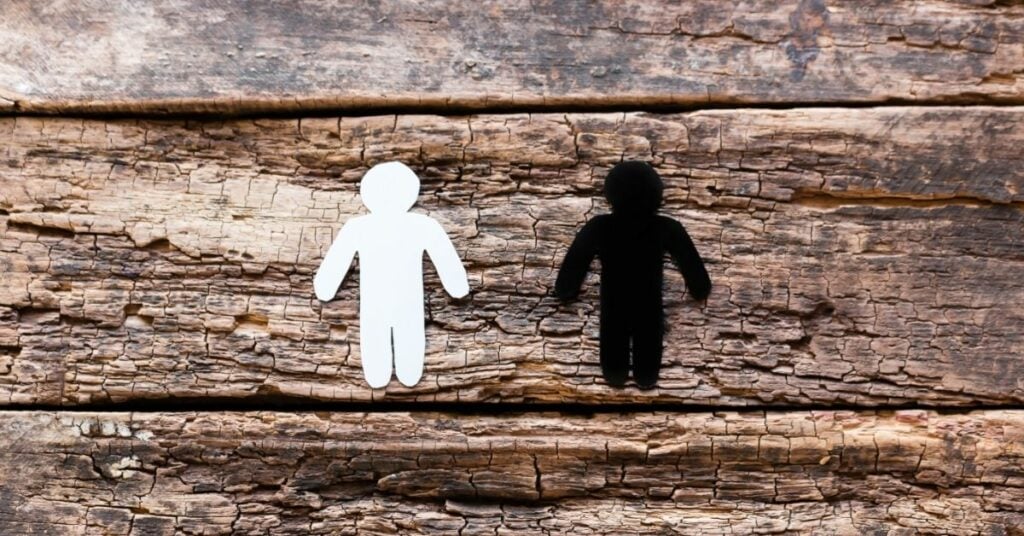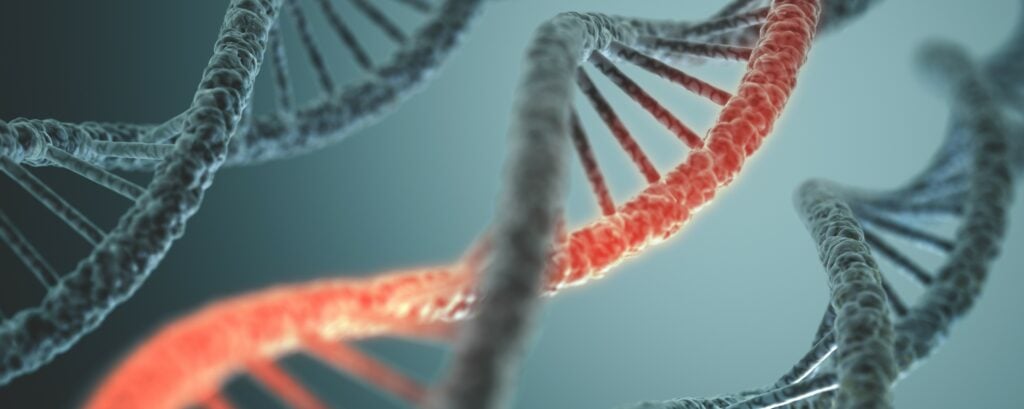Breaking the cycle of Jewish American generational trauma
Reviewed by Stephanie Steinman, PhD, CSAC


As a child, I had a recurring nightmare that I was being chased by Nazis. It was nighttime in the dream, and I was alone, barefoot, and dressed in thin pajamas.


Once I reached adulthood, I chalked up my childhood nightmares to an overactive imagination and having been raised by anxious, overprotective parents. But the more I learned about epigenetics, the more I wondered if the persecution my Jewish ancestors experienced in Europe and Russia had something to do with it.
My family history is a common one among Ashkenazi Jewish Americans: One or more parents, grandparents, great-grandparents, or other relatives endured unspeakable horrors, losing their family, homeland, and belongings to persecution and genocide.1 Maybe I’d inherited my childhood inability to sleep peacefully through the night from previous generations, their subconscious trauma taking up residence in my young mind and body.
On the surface, nightmares like these may sound neurotic, says Rabbi Tirzah Firestone, PhD, who’s also a Jungian psychotherapist and the author of “Wounds into Wisdom: Healing Intergenerational Jewish Trauma.” “Then you scratch the surface and realize, actually, there’s a really good reason,” she says. “It didn’t begin with you—it started before you.”
It can be liberating to realize that your mental health struggles might have deep-seated roots in past generations, Firestone says. But how is Jewish ancestral history impacting Jewish mental health today? And how are present-day Jews managing our inherited traumas?
A legacy of insecurity and anxiety
“Trauma residue” is a fairly universal phenomenon for modern-day Jews, Firestone says. “So, for instance, anxiety—a floating sense of, ‘Yikes, something bad is going to happen. That shoe is going to drop.’”
Naomi, who’s in her fifties and works for a Massachusetts-based philanthropic organization, can relate. She jokes that mental health issues don’t just run in her family, they gallop.
Like many Jews in the United States, Naomi can trace a direct line from the Holocaust to the mental health struggles of her living family members: Her paternal grandmother lost much of her family in Poland during the war.
“I think sometimes when it comes to the Holocaust, we tend to underestimate the impact of the full destruction that happened in Europe at that time and what it means,” says Galit Atlas, PhD, a psychoanalyst and the author of “Emotional Inheritance: A Therapist, Her Patients, and the Legacy of Trauma.”
Even families who managed to escape the Holocaust together can carry a fair amount of psychic trauma, she says.
“Sometimes you hear people say, ‘Your family died?’ ‘No, we escaped.’ But in fact, their whole town was destroyed, all their friends died, all of their neighborhood,” Atlas explains. “And I think that leaves people who survived with survivor’s guilt.”
Naomi didn’t learn the details of her family history until she was a wife and mother herself. But she arrived at adulthood with a fair amount of anxiety and insecure attachment issues. She credits a decade of talk therapy with helping her work through her daily anxieties and relationship attachment issues, and with helping her realize how unhealthy her first marriage was and giving her the strength to leave it.
Smart choice, says Atlas. “I think that in order to heal, we need another person,” she explains. “We do need another mind in order to process what’s on our mind—somebody that can metabolize with us, so we’re not there just doing the work alone.”
But for Naomi, talk therapy was only one piece of the healing puzzle.
“I practice more loving forms of self-talk,” she says, “and I’ve worked on deep breathing techniques and finding ways to basically calm myself when I start to get anxious. I have been on antidepressants, but right now I’m not medicated and I’m doing okay, thankfully.”
Reclaiming Jewish joy
Carolyn Fine, 50, a coach and healer based in Portland, Oregon, was raised in a family who downplayed their Jewish ancestry. For much of her adult life, she has kept Judaism at arm’s length.
“I have always identified strongly as a cultural Jew, and I love our idiosyncrasies and humor and critical thinking styles,” Fine says, “but I’ve been very careful to distance myself and not seem too Jewish.”
For one thing, she didn’t feel safe coming across as “too Jewish.” For another, due to anti-Semitism she’d internalized throughout her life, she worried that revealing her Jewish heritage to others would be “weird or shameful.”
A therapy session incorporating the psychedelic drug MDMA (also known as ecstasy) changed all that. Fine entered the session hoping to heal some childhood wounds. Instead she was flooded with a deep awareness of thousands of years of collective Jewish oppression, flight, and assimilation—and how they had led to her own internalized anti-Semitism.
“I got a bigger picture of what’s alive in my DNA and my cells and my cellular memory,” Fine says. “It’s like I got a tour of all the intense exile trauma, the need to escape, to try to prove myself, the shame stuff—and I was like, ‘Why is this so intense?’ Then I got that this is our legacy.”
Fine soon began working with Jo Kent Katz, a healer, Jewish priestess, and social justice educator. Through their conversations, Fine has worked to reconcile her inherited trauma and heal from the resulting insecurities and self-defeating patterns that hold her back in life, like her fears of being left out and of not being good enough.
Thanks to this exploration, Fine has fallen in love with Judaism and embraced some of its traditions for the first time in her life. She’s hung a mezuzah (a small, decorative case containing Torah verses) at her front door. She’s begun celebrating holidays like Rosh Hashanah and Passover with her husband and children. She plans to start having shabbat dinners, and she’s connected with other progressive Jews in her community.
“Right now I’m loving exploring spirituality through the lens of my Judaism and recognizing the beauty of our rituals and how they give a cadence to family life that I was missing,” Fine says. “This is who I am. And that’s been a direct result of exploring the trauma piece.”
Reframing fear as resilience
Some fears are so deeply established in Jewish bodies that there seems to be no shaking them. Naomi has felt this more acutely since the 2016 US presidential election.
“I cannot let my passport lapse,” she says. “I feel so anxious about it—even if I have no plans to travel abroad. I feel it in my bones that at any minute shit could go down and I might have to flee. Everyone in my family feels this way.”
The history of persecution can be both a blessing and a curse for contemporary Jews, Atlas notes.
“I believe it helps, and at other times it creates neurotic behavior that is typical to people who carry generational trauma,” Atlas says. “We are alert and react quickly to threats. This, of course, often also helps us to survive.”
Fine prefers to see the upside of this collective fight-or-flight mentality. “I want to give a shout-out to Jewish ancestral magic and resilience,” she says. “I think we get overly focused on the trauma stuff. Some of the best of the human condition exists alongside this stuff.”
This resonates with me deeply as an anxious person. Cognitive behavioral therapy, talk therapy, exercise, meditation, and rest are some of the tools I’ve used over the past couple of decades to quiet my mind when it races—and try to channel my anxiety into something more constructive, like writing this article.
While the world doesn’t always feel like a safe place, I don’t dream I’m running for my life anymore.
If you think you may be struggling with the effects of trauma, consider connecting with a therapist. They can help you process how you’re feeling and begin to heal. Browse our directory to find a licensed mental health professional near you.

About the author
Michelle Goodman is a Seattle-based journalist and essayist who often writes about death and grief. Her work has appeared in many publications, including the Washington Post, the New York Times, Salon, Narratively, and several anthologies. She is also the author of two books, “The Anti 9-to-5 Guide” and “My So-Called Freelance Life.”
Related articles

Psychedelic therapy and racial trauma: Offering clients a deeper experience of healing
Can psychedelic therapy offer a faster, deeper way to heal the...

Financial trauma: How money trouble can affect mental health
From being unable to meet basic needs to experiencing a huge loss, financial...

Unhealed bodies: Looking at ancestral trauma
Resmaa Menakem, author of My Grandmother’s Hands, discusses racialized trauma...

Generational trauma, epigenetics, and mental health
Research suggests the trauma of past generations may be passed down and can...
